What Happens in The Electra?

Sophocles’s Electra is a powerful exploration of the human psyche, delving into themes of grief, revenge, justice, and the complex dynamics of family. By examining this ancient tragedy through the lens of Jungian archetypes and depth psychology, we can uncover profound insights into the nature of the self, family, and the consequences of unresolved trauma.
I. Summary of Electra
Electra takes place years after the murder of Agamemnon, the king of Mycenae, by his wife Clytemnestra and her lover Aegisthus. Electra, Agamemnon’s daughter, lives in a state of mourning and rage, longing for the return of her exiled brother Orestes to avenge their father’s death.
The play opens with Orestes returning in secret with his friend Pylades. They devise a plan whereby Orestes pretends to be a messenger bearing news of his own death. Electra is shattered by this news, but soon Orestes reveals his identity to her. Together, they plot their revenge.
Electra and Orestes kill Clytemnestra and Aegisthus. The play ends with the siblings standing over the bodies, their vengeance complete but their future uncertain.
II. Archetypal Figures in Electra
Electra: The Obsessed Daughter
Electra embodies the archetype of the Obsessed Daughter, consumed by grief for her father and hatred for her mother. She is a figure trapped in the past, unable to move forward or find peace until she has taken revenge.
Electra’s obsession can be seen as a manifestation of the unresolved trauma of her father’s murder and her mother’s betrayal. She is haunted by the ghost of Agamemnon, driven by a sense of duty to avenge him and restore honor to his memory.
In psychological terms, Electra’s fixation on revenge can be seen as a defense mechanism, a way of channeling her grief and anger into a single, all-consuming purpose. It is a way of avoiding the more difficult task of mourning and moving on.
Orestes: The Avenging Son
Orestes represents the archetype of the Avenging Son, the male counterpart to Electra’s Obsessed Daughter. He is the instrument of revenge, the one who will carry out the deed that Electra cannot.
Orestes’ return and his enactment of revenge can be seen as a manifestation of the return of the repressed – the eruption of the buried trauma and anger of the House of Atreus. His actions are a form of repetition compulsion, a re-enactment of the cycle of violence and betrayal that has haunted his family for generations.
At the same time, Orestes’ hesitation before killing Clytemnestra and his subsequent remorse suggest a glimmer of psychological insight, a recognition of the futility and horror of revenge.
Clytemnestra: The Terrible Mother
Clytemnestra, the mother who killed her husband and now lives with his murderer, embodies the archetype of the Terrible Mother. She represents the dark, devouring aspect of the feminine, the mother who betrays and destroys her own children.
In psychological terms, Clytemnestra can be seen as a manifestation of the negative mother complex – the internalized image of a devouring, destructive mother figure. Her murder of Agamemnon and her rejection of her children represent a profound betrayal of the maternal role, a severing of the bonds of nurture and protection.
Clytemnestra’s presence in the play, even in death, is a haunting reminder of the power of the past to shape and distort the present. She is the embodiment of the unresolved trauma that drives Electra and Orestes to their desperate acts of revenge.
III. Trauma and Fixation
At its heart, Electra is a story of unresolved trauma and fixation. Electra’s grief over her father’s murder and her mother’s betrayal has become a consuming obsession. She is stuck in the past, unable to move on until the wrong is avenged. This fixation has arrested her psychological development, locking her into a state of perpetual mourning and rage.
IV. Justice and Revenge
The play raises complex questions about the nature of justice and the consequences of revenge. Electra and Orestes’s vengeance is a form of primal justice, a blood retribution that restores order in a brutal way. However, the play also suggests that this kind of revenge is morally corrosive, leaving the avengers as bloodstained as the guilty.
V. Family and Fate
Like the Theban plays, Electra powerfully depicts the web of family relations and how they shape an individual’s destiny. Electra and Orestes are trapped in a cycle of familial violence and betrayal, their fates tied to the sins of their parents. The play suggests that we are profoundly shaped by our family histories, often inheriting traumas and conflicts that we must struggle to overcome.
VI. Psychological and Societal Implications
Unresolved Grief and Trauma
Electra’s story is a powerful depiction of the psychological consequences of unresolved grief and trauma. Her inability to move past her father’s murder and her mother’s betrayal has left her in a state of arrested development, consumed by anger and despair. The play suggests that healing requires confronting and working through these painful experiences, rather than being fixated on them.
The Cycle of Violence
The play also illustrates the destructive cycle of violence and revenge. Electra and Orestes’s vengeance, while ostensibly a form of justice, only perpetuates the cycle of bloodshed. The play warns against the seductive pull of revenge, suggesting that it ultimately erodes the moral fabric of both the individual and society.
The Shadow of the Family
Electra powerfully demonstrates how family dynamics shape the individual psyche, often in dark and complex ways. Electra and Orestes are both shaped by the shadows of their family history – the murder, betrayal, and trauma that they have inherited. The play suggests that confronting and integrating these family shadows is a necessary part of the journey towards wholeness.
Sophocles’s Electra is a timeless exploration of the human psyche, delving into the deep, dark waters of grief, revenge, family, and fate. By portraying archetypal figures and situations, it illuminates universal human experiences of trauma, obsession, and the struggle for justice. It serves as a warning about the destructive power of unresolved grief and the seductive pull of revenge. At the same time, it points towards the necessity of confronting and integrating the shadows of our past, both individually and collectively. In doing so, it offers a profound and enduring mirror of the human condition.
The Repetition of Familial Trauma
The play is also a powerful illustration of the way in which trauma and dysfunction can be passed down through generations of a family. The House of Atreus is caught in a cycle of betrayal, murder, and revenge that goes back generations, from the original sin of Tantalus to the crimes of Agamemnon and Clytemnestra.
Electra and Orestes, as the children of this troubled house, are inheritors of this legacy of trauma. Their obsession with revenge can be seen as an attempt to break free from this cycle, to restore order and justice to their family. Yet in doing so, they only perpetuate the violence and suffering.
In psychological terms, this cycle of intergenerational trauma reflects the way in which unresolved psychic wounds can be passed down from parent to child, shaping and distorting the emotional lives of each new generation. It suggests the necessity of confronting and working through these inherited traumas in order to break free from destructive patterns.
The Difficulty of Healing and Redemption
Despite the bleak and bloody events of the play, Electra also hints at the possibility of healing and redemption. The appearance of the gods at the end, decreeing Orestes’ trial and Electra’s marriage, suggests a potential path out of the cycle of revenge.
Orestes’ exile and trial can be seen as a necessary confrontation with the consequences of his actions, a facing up to the reality of what he has done. It is a painful but potentially transformative process, one that could lead to a new understanding and a chance for redemption.
Similarly, Electra’s marriage to Pylades and her forced departure from Argos represent a break from her past, a chance to start a new life free from the ghosts of her family. While it is a bittersweet resolution, it nonetheless offers a glimmer of hope for escape from the cycle of trauma.
In psychological terms, these resolutions reflect the difficult but necessary process of working through trauma and dysfunction. They suggest that healing and redemption are possible, but only through a painful confrontation with the past and a willingness to let go of old patterns and identities.
The Power of the Unconscious
Finally, Electra is a vivid illustration of the power of the unconscious mind to shape and drive human behavior. The characters in the play are driven by deep, often unrecognized psychological forces – grief, anger, guilt, the desire for revenge.
These unconscious drives are what propel the action of the play, leading the characters into confrontations and acts of violence that they may not fully understand or intend. They are a reminder of the way in which our conscious lives are often shaped by hidden, irrational forces within the psyche.
In psychological terms, the play can be seen as a kind of map of the unconscious, a exploration of the dark corners of the human mind. It suggests the importance of bringing these unconscious forces into the light of awareness, of understanding and integrating them in order to achieve a greater wholeness and self-mastery.
The Corrosive Nature of Hatred and Revenge
At its heart, Electra is a study in the corrosive nature of hatred and the futility of revenge. Electra’s all-consuming obsession with avenging her father has left her emotionally stunted, unable to live her own life or find any peace.
Orestes’ enactment of revenge, while ostensibly a fulfilment of his duty, brings him no satisfaction or release. Instead, it plunges him into a new cycle of guilt and remorse, forcing him into exile and trial.
In psychological terms, this portrayal of revenge as a self-defeating and ultimately hollow act reflects the insight that violence and hatred, even if justified, can never truly heal trauma or bring about resolution. They only perpetuate the cycle of pain and retribution.
Read About Other Classical Greek Plays and Their Influence on Depth Psychology
Classical Literature
Iphigenia in Aulis




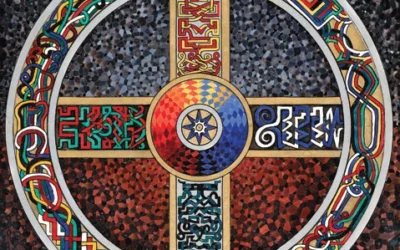
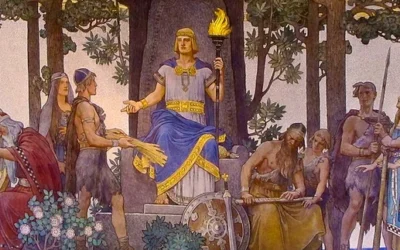


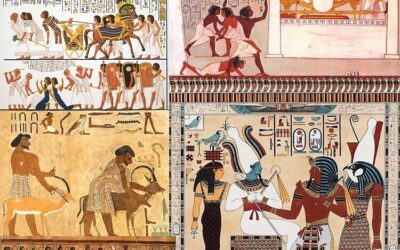
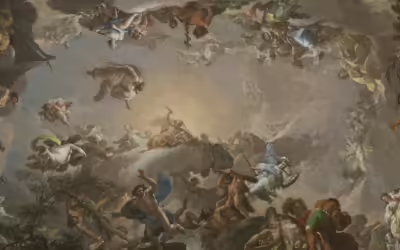



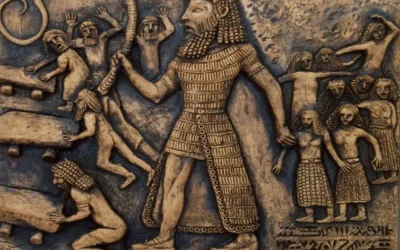




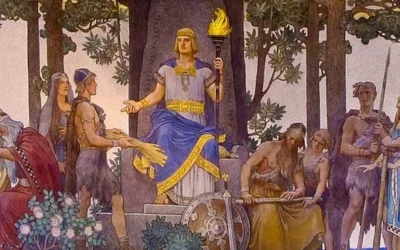





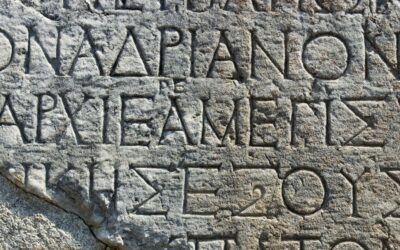

0 Comments